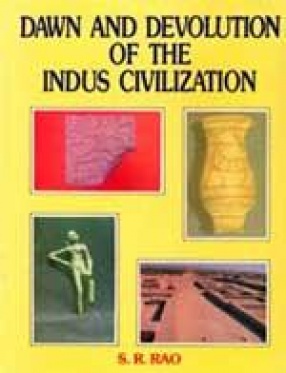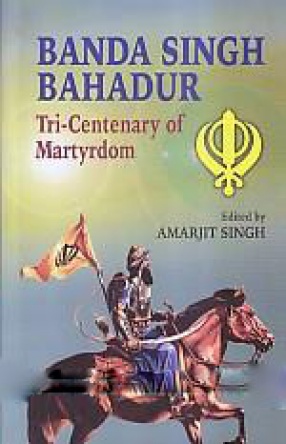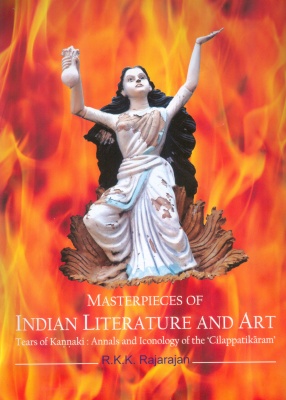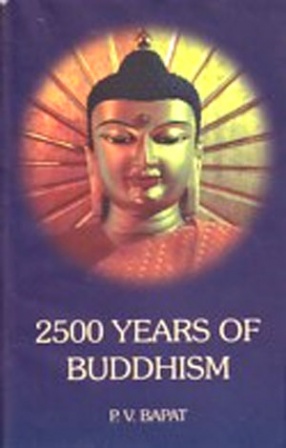The Indus (Harappa) civilization dominated the Indian subcontinent for more than 700 years from 2400 to 1700 B.C. Even now it is a living civilization in the sense that the essential elements of the civilization such as religion, philosophy, the art of writing and the science of yoga have greatly influenced the thought process and lifestyle of the people of India and the neighbouring countries in South Asia. But certain misconceptions about the end of the Indus civilization and its contribution to world thought, culture and material progress still prevail. In presenting the latest archaeological and linguistic evidence from recent excavations of Harappan sites the Dawn and Devolution of Indus Civilization removes these misconceptions and highlights the survival of the Indus civilization in a less sophisticated deurbanised form for a few more centuries outside the Indus Valley but making substantial contribution to later civilization. The author puts forth convincing evidence to prove that the decline of Indus Valley cities was not due to the invasion of "barbaric Aryans unsympathetic to civilization" but due to natural calamities such as floods dessication and tectonic activity. A strong Aryan substratum was already present in the Indus civilization during its early days, and continued to the last, leaving its indellible impression on the fabric of Indian culture. Tired of natural disasters the Harappans migrated to the Sarasvati (Ghaggar), Drishadvati (Chautang), Yamuna and Ganga valleys in the east and to Gujarat and Narmada valleys in the south. There they lived in small villages selling their skill to the local population and transformed the political and cultural scene into what can be identified as the Vedic culture. The Indus people were neither conservative nor lived in isolation as made out by some archaeologists and historians. The Dawn and Devolution of Indus Civilization points out that the Harappans had built up a vast network of land and overseas trade with Mesopotamia, Iran and the Arabian countries which resulted in cultural interaction and exchange of ideas as attested to by the evolution of the Semitic script bearing close resemblance to late Indus cursive alphabetic script. The science of yoga which the world values greatly today is one of the Harappan legacies, the other being Indus metrology. Some missing links about town-planning leading to second urbanisation in the mid-second millennium B.C. are brought to light in Dawn and Devolution of the Indus Civilization. The book is profusely illustrated with charts, maps, tables and photographs of excavations of all important sites. It is a must for students of history, religion, philosophy, sociology, and history of science, technology and engineering besides archaeologists.
Dawn and Devolution of the Indus Civilization
$72.00
$80.00
In stock
Free & Quick Delivery Worldwide
All orders amounting to US$ 50 or more qualify for Free Delivery Worldwide. For orders less than US$ 50, we offer Standard Delivery at $14 per book.
ABOUT THE AUTHOR Shikaripur Ranganatha Rao
Dr. Shikaripur Ranganatha Rao (S.R. Rao), M.A., D.Litt. (born 1922), is the discoverer of a large number of Harappan sites including the famous port-city of Lothal in Gujarat. His excavations at Rangpur and Lothal after the partition of the subcontinent of India not only added a new Province to the Indus Empire but also cleared many doubts about the survival and contributions of Indus Civilization to the progress of mankind. In fact, Lothal and Rangpur are considered as index sites and subsequent excavators of Harappan sites have compared the cultural sequence of their sites with that of Rangpur and Lothal. Dr. Rao is a versatile scholar whose knowledge of Indo-Aryan and Dravidian languages coupled with his scientific approach has enabled him to decipher the Indus script. The history books in India have already started incorporating his findings on Indus language and religion. With a continuous experience of 42 years in excavating and publishing reports of Harappan, Late Harappan, Post-Harappan, Chalcolthic, Megalithic, Early Historic and Medieval sites, he is in a position to give an overall picture of protohistoric India. After serving the Archaeological Survey of India for 32 years he retired in 1980, but immediately thereafter his services wee requisitioned by the Indian National Science Academy and later by the Department of Science and Technology and the Council of Scientific and Industrial Research to be the Emeritus Scientist at the National Institute of Oceanography, Goa. He is the pioneer of Marine Archaeological Studies in India and has to his credit the discovery and underwater excavation of the legendary city of Dawaraka of Mahabharata fame. His excavations have established the authenticity of the great epic of India as a source of history. Among the several honours and awards received by him, particular mention may be made of Jawaharlal Nehru Fellowship for decipherment of Indus script, the Centenary Gold Medal of the archaeological Department of Karnataka and Rajyaprasasti of the Government of Karnataka for excellence in Archaeology and the Mythic Society Gold Medal. Recently (1991) he received the National Award of the FIE Foundation for excellence in Science and Technology. His books – Lothal and the Indus Civilisation, Lothal: A Harappan Port Town, The Decipherment of the Indus Script, Traditional Paintings of Karnataka, Amreli A Kshatrapa-Gupta Town, Progress and Prospects of Marine Archaeology in India, Marine Archaeology of Indian Ocean Countries and Recent Advances in Marine Archaeology are widely read. He has 70 research articles to his credit and has widely traveled and delivered lectures in the universities of Europe, America and the USSR. He is very active in the field even today and is presently conducting underwater excavations at Dwaraka, Poompuhar and Goa. He is the Chairman of the Keladi Museum and has edited The Descriptive Catalogue of Palmleaf Manuscripts in the Keladi Museum....
reviews
0 in total
Review by Anonymous
Be the first to review “Dawn and Devolution of the Indus Civilization” Cancel reply
You must be logged in to post a review.
Bibliographic information
Title
Dawn and Devolution of the Indus Civilization
Author
Edition
1st. ed.
Publisher
ISBN
8185179743
Length
xxviii+392p., Illustrations; Plates; Bibliography; Index; 29cm
Subjects
similar bookssee more
Masterpieces of Indian Literature and Art: Tears of Kannaki : Annals and Iconology of the ‘Cilappatikaram’
Kannaki and the annals of ...
$229.50
$255.00





There are no reviews yet.